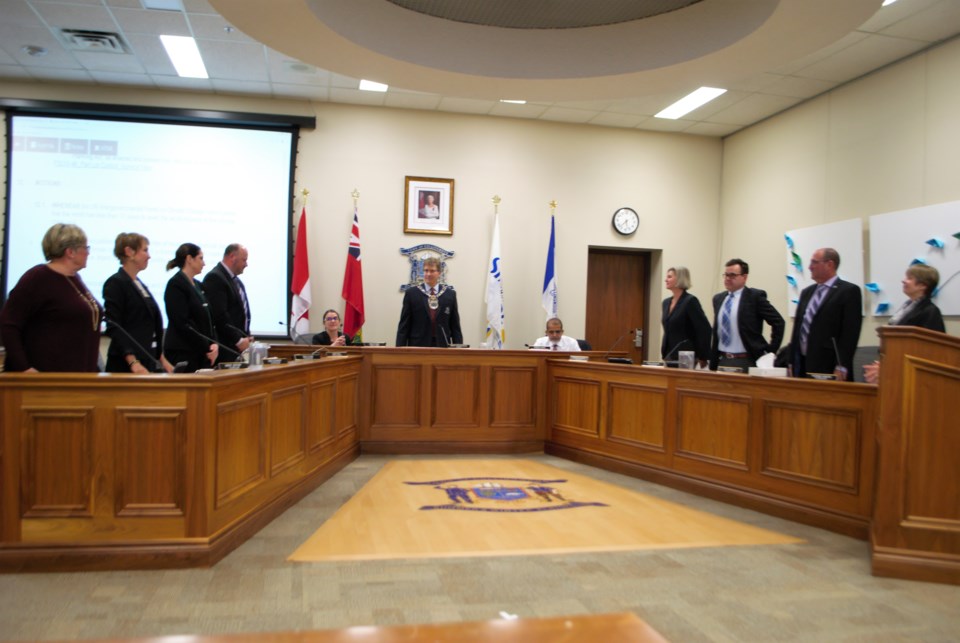This week, council voted to direct Town of Collingwood staff to look at greenhouse gas emissions to come up with a path forward, however some councillors worried that the minimum targets being considered for the corporation of 20 per cent weren’t aggressive enough.
During Tuesday’s (Sept. 20) meeting, councillors voted in support of a motion for staff to come back in early 2023 to present a Corporate Climate Change Action Plan. As part of the plan, staff will be considering the financial implications and activities for a range of scenarios, starting with a 20 per cent greenhouse gas emissions reduction target compared to 2019 levels, all the way up to consideration of the same implications should the town strive for a net-zero target.
Executive Director of Customer and Corporate Services Amanda Pegg confirmed that 20 per cent is a minimum only for the corporate plan.
“Our intention would be to go away, do some analysis... and come back to council to show that at 20 per cent, this is the financial commitment and these are the types of activities we could do; at 25 per cent, this would be the financial commitment and activities; and at net-zero, this would be the financial commitment and these would be the type of activities,” said Pegg.
“At that point, council could direct us to a final target.”
Greenhouse gases are generated mainly by burning fossil fuels for energy and by decomposing organic waste in landfills. A net-zero target is obtained when greenhouse gas emissions are offset completely by other actions to clean the air.
During a corporate and community services meeting earlier this month when the matter was first discussed, councillors received a deputation from the Collingwood Climate Action Team’s (CCAT) David Ohrling. He argued that the 20 per cent target didn’t go far enough.
He cited other municipal councils in the area, including Grey County (40 per cent goal) and Orillia (50 per cent goal) and noted they have also included a goal of reaching net-zero emissions.
Council received a letter from CCAT this week re-iterating those concerns. Some councillors also spoke during Tuesday’s meeting regarding those concerns.
“Our town did declare a climate emergency,” said Coun. Yvonne Hamlin. “Of all communities, we have an obligation to step up and do the best we can. I do feel we can do better. I feel 20 per cent is very low.”
“How far can we push this? I’m not in support of the staff report,” she said.
Coun. Deb Doherty echoed Hamlin’s comments.
“In this community, we’re ... taking a leadership role. To identify a target as low as a 20 per cent decrease over 2019, it is not reaching far enough,” said Doherty.
The town is part of the Partners for Climate Protection program, which is a network of Canadian municipal governments that have committed to reducing greenhouse gas emissions their corporate operations are producing. The overall program is managed by the Federation of Canadian Municipalities, of which Collingwood is a member.
The town announced in April it had completed an inventory of its corporate greenhouse gas emissions. According to 2019 data, the town’s corporate greenhouse gas emissions that year amounted to 3,327 tonnes of carbon dioxide emissions. Staff estimated that could increase to 4,365 tonnes by 2030 with no change.
Inventory calculations for the community of Collingwood as a whole estimate the 2019 baseline emissions at 207,218 tonnes of carbon dioxide emissions, with a predicted increase to 271,888 tonnes by 2030.
During Tuesday’s meeting, Deputy Mayor Mariane McLeod said council wasn't counting out higher targets or a net-zero goal for the 2030 plan.
“My understanding was we were directing staff to create a plan. The plan is not set. Twenty per cent is not set, that it is a minimum 20 (per cent) and we will look at net-zero if at all possible in the plan,” said McLeod. “I do believe net-zero is on the table.”
Coun. Chris Carrier said he was pleased with the staff report.
“We know this is a starting-over number,” said Carrier. “I don’t want to ignore what we’ve done in the past. We’ve already reduced our greenhouse gas emissions significantly.”
Carrier pointed to projects around town that have already contributed over the years to the reduction of GHG emissions within the corporation, such as changes to Collingwood transit, the Collingwood Public Library build and the passing of the anti-idling bylaw.
“I’d like to see a stronger data set as we move forward so greater initiatives can be realized as new technology comes online,” he said.
Coun. Steve Berman said he didn’t want to set a higher number just “to impress people.”
“We want to be aspirational with this, but we don’t want to make empty promises,” said Berman.
In regards to a timeline, Pegg said the intention would be to come back before council at the beginning of 2023 with additional targets and associated financial implications.
“Council can then set a final target with the financial implications provided with the plan at the same time, so there’s a complete picture when that approval is being sought,” said Pegg.
After discussion, Hamlin put forward an amendment to return the matter to staff for a review of the minimum greenhouse gas emissions target. The amendment was defeated by a vote of 5-2 with Doherty and Hamlin in favour.
The main motion was passed by a vote of 5-2, with Doherty and Hamlin opposed. Coun. Bob Madigan was absent from the meeting.



